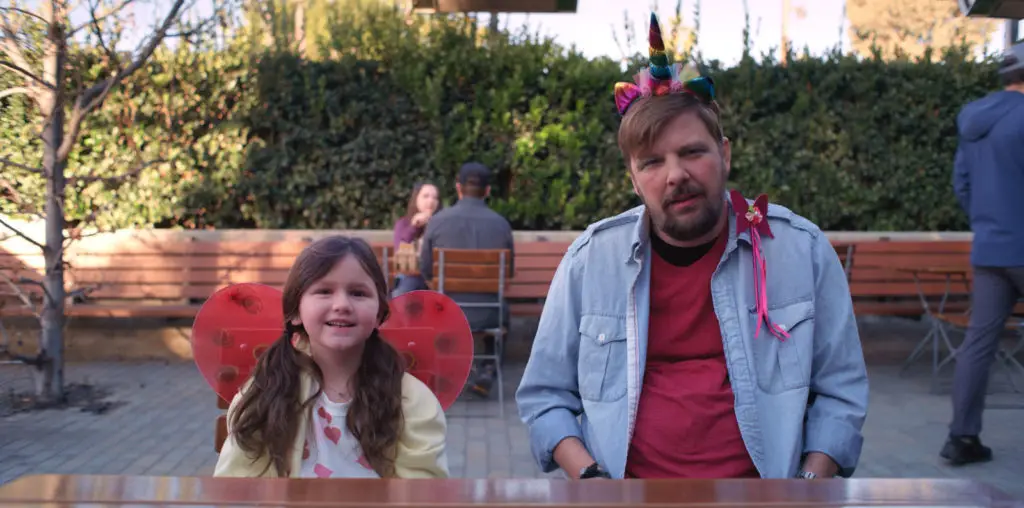
“Wake” is not only an obvious title for this short film about Nicky, a 10-year-old boy at the wake of his photographer brother, Jeremy, who was killed in the Middle East. The title is more clever and deeply layered than it sounds. This film lets certain details out when the moments are right, but not before the audience is fully involved in the somber proceedings.
Nicky (Christopher Kutil, a serious and gifted child actor) is full of emotion and confusion in his now saddened house, though for most of the film, he watches and observes. Why is his father (Wayne Maugans) trying to put together a crackers-and-cheese platter in his bereaved state of mind? Just to keep busy for the moment, sure, but it’s not working. Why is his mother (Anne James) taking down the framed photos in Nicky’s brother’s room? Jeremy (Jimmi Kilduff) may be dead, but his memory isn’t, as Nicky decides when he takes his brother’s camera and begins photographing the people that stand in the living room, who knew Jeremy in different ways.
He takes a photo of a gray-haired man who would be spirited at any other time, and we see the memory of Jeremy working at a diner, with the man as his boss. This was a time when Jeremy was sending out his resume and photographs, hoping that his passion would become his job. A picture taken of Jeremy’s friends shows us a happy day on the beach with Nicky and Jeremy playing football with those friends. But others don’t see what Nicky sees by keeping his brother’s memory alive through the camera.
Father Dan (Stephen Bradbury) doesn’t believe it’s appropriate to take pictures “on a day like this,” as he says to Nicky, twice. Why not? This is how Jeremy lived. To try to lock that away, even on this day, would essentially deny three-quarters of who Jeremy was. This is a different kind of wake for Nicky, who finds himself continuing his brother’s work and happiness.
“Wake” is deeply touching not only in these details, but also in how it reminds us of the individual lives lost in the Middle East. A lot of people who served there had families, as we see here. They had various interests. When Nicky touches each of his brother’s photo albums at the end, we hear his brother’s voice fondly describe the contents of each. This film also states that what seems trivial at any given moment could be important later on, as at the beginning, when Nicky’s mother and father get out of a car and walk toward the house. We may see them first as a badly shaken couple, entering the house ahead of the wake that will begin soon. The moment becomes important to remember later on, when we reconsider how they got out of the car. It’s a slight surprise after we experience the conflicting emotions of this wake.
Besides all this, thoughtfulness, genuine sincerity, and total emotional honesty are what one can expect from “Wake.” It invites you in, but leaves you to your own considerations as the story progresses. It never pressures you to agree with any viewpoint presented, such as the priest’s reaction to Nicky taking pictures.
If this is what writer/director Andrew Lawton and his cast and crew can do with 28 minutes, then hopefully a feature film isn’t too long off. I want to spend more time in Lawton’s cinematic care.

